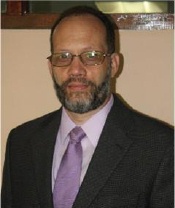Caribbean Community (CARICOM) Ambassador had a busy week at UN
NEW YORK – Secretary-General of the Caribbean Community (CARICOM) Ambassador Irwin LaRocque used the opportunity of the High Level Debate of the 67th Meeting of the United Nations General Assembly (UNGA) at UN headquarters, New York, USA, last week to hold a number of side meetings.
A number of CARICOM Heads of Government spoke at the Debate including those of Antigua and Barbuda, Guyana, Haiti, Jamaica, St. Kitts-Nevis, Saint Lucia and St. Vincent and the Grenadines. The Secretary-General also joined the CARICOM Heads of Government at a meeting with the UN Secretary General, His Excellency Ban Ki-Moon, at which they raised concerns over the need for greater UN engagement with CARICOM. The CARICOM team brought to Mr Ban’s attention the prevailing economic situation of the Community resulting from the global economic crisis and the issue of “graduation” which has adversely affected CARICOM Member States.

Ambassador Irwin LaRocque
They also emphasised the need for special focus on and support for small-island and low-lying developing states with regard to the disproportionate impact of climate change on them. The Heads of Government further raised the issue of sustainable development as well as UN follow-up to last year’s High Level UNGA Meeting on Non Communicable Diseases initiated by the Caribbean Community and the shortage of CARICOM nationals at a senior level at the UN.
For his part, the UNSG commended the Community for the leadership role it played at the Rio+20 Conference and for the increasing integration of Haiti into the Community symbolised by Haiti’s chairing of the Community as of January 2013. In response to the concerns voiced by Heads of Government, he indicated his intention to have the UN more engaged and responsive to the needs of the Community.
The Secretary-General met with the Prime Minister of Spain, the Honourable Mariano Rajoy, at the invitation of the latter, and called for the support of Spain within the councils of the European Union (EU) to advocate on behalf of the Community with regard to the effect on the Region of certain provisions in the Union’s draft policy paper on development assistance.
The draft development policy is being debated by the EU currently and if accepted in its present formulation, would sever CARICOM’s Middle Income States from EU development assistance. Through differentiation most CARICOM Member States are categorised as Middle Income Countries (MICS) because of their relatively high per capita income levels and will be denied access to concessionary funding and development assistance form International Development Partners.
This on-going expression of the Region’s concerns was re-enforced by CARICOM Foreign Ministers at a working lunch with their Nordic counterparts (Finland, Norway, Sweden, Denmark and Iceland) during which they requested their support on the issue of “differentiation” within the EU.
As a member of the group Political Champions for Disaster Resilience, which was established by the United Kingdom’s Department for International Development (DFID) and the United Nations Development Programme (UNDP), Ambassador LaRocque took part in its second meeting to which he was accompanied by the Executive Director of Caribbean Disaster Emergency Management Agency (CDEMA), Mr Jeremy Collymore. The meeting examined among other things the importance of resilience in disaster management.
Secretary-General LaRocque joined the Foreign Minister of Guyana, the Honourable Carolyn Rodrigues-Birkett, who is current Chairperson of the Caribbean Development and Cooperation Committee (CDCC), the sub-regional extension of the Economic Commission for Latin America and the Caribbean (ECLAC), to meet with the Director of ECLAC Her Excellency Alicia Bárcena. They sought to enlist the continued support of her organization with regard to improving the capacity of the Community in gathering and analysing data and statistics as well as to deepen the analysis of the Community’s intra-regional and external trade. They also requested technical assistance from ECLAC with regard to the Community’s efforts to elaborate on the concept of “vulnerability”, one of the major countervailing arguments advanced by the Community in arguing against “graduation” and “differentiation” of its Member States.
He also had a fruitful meeting with the Director General of UNESCO which touched on ocean governance, the knowledge-based society and the contribution of ICT to education, the protection of world heritage sites in the Community, the problem of male education underachievement and the importance of cultural industries to the economies of the Region. The conclusion of a renewed Memorandum of Understanding between the Caribbean Community and UNESCO was also raised. Both sides agreed to have it concluded as quickly as possible.
